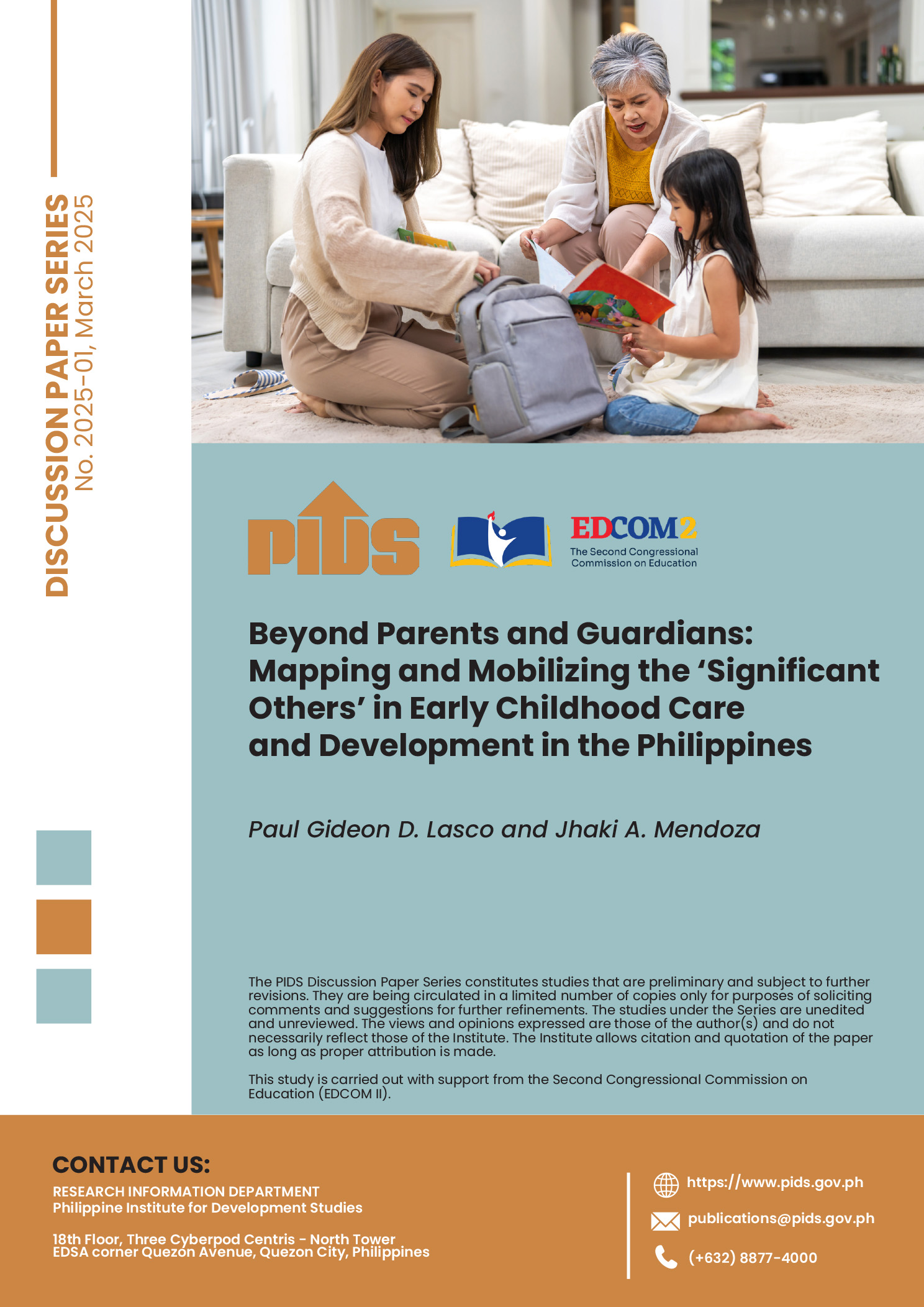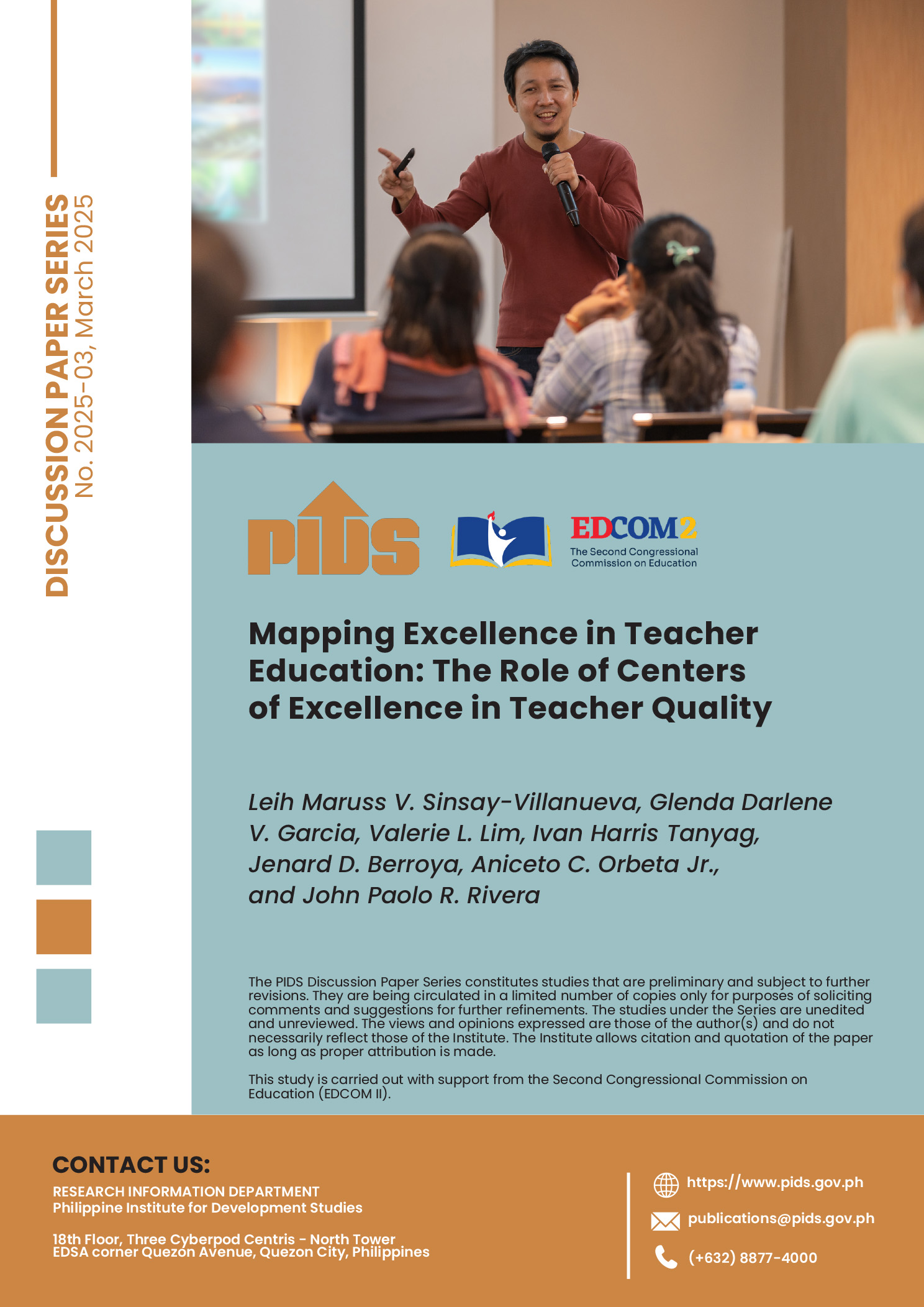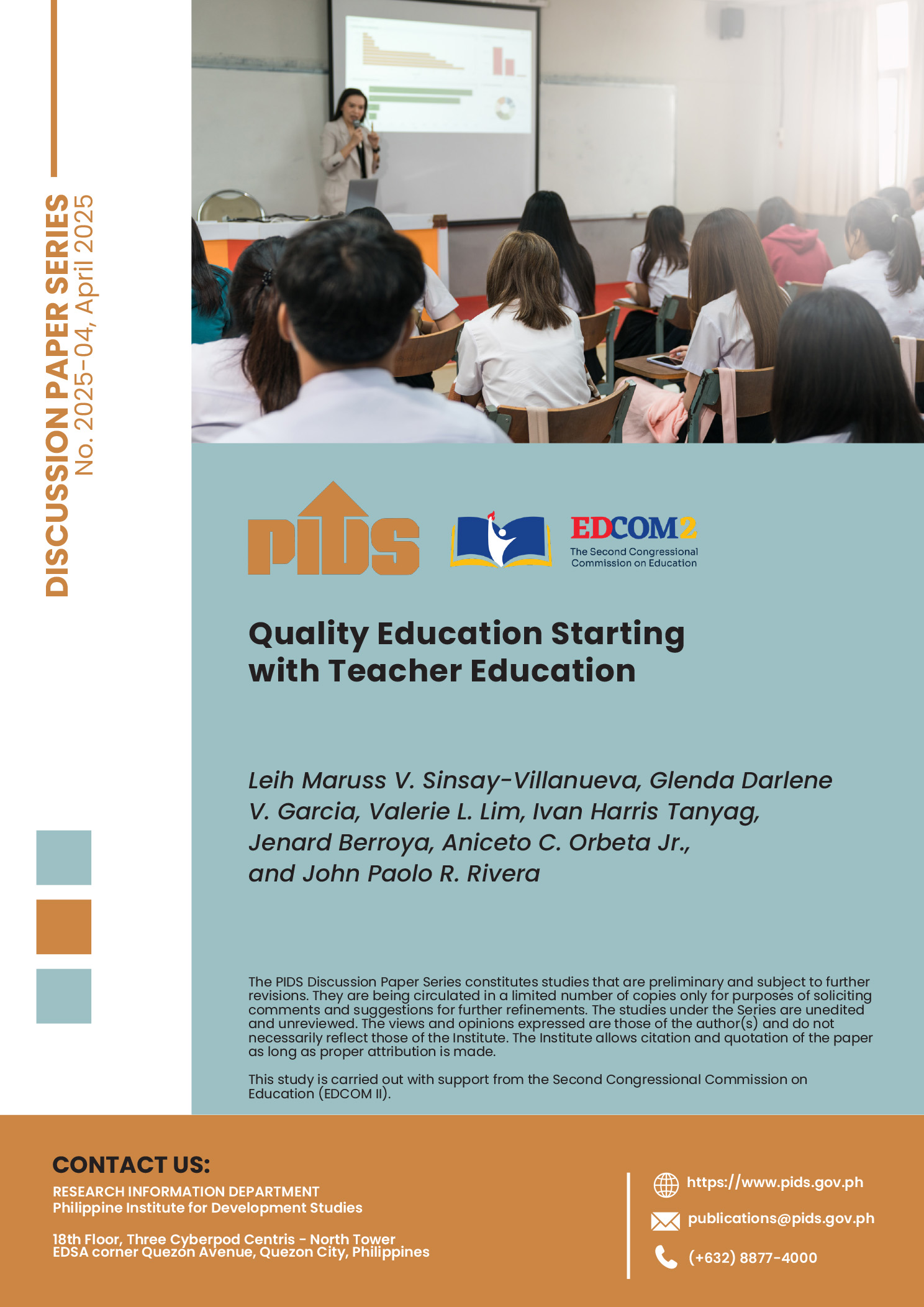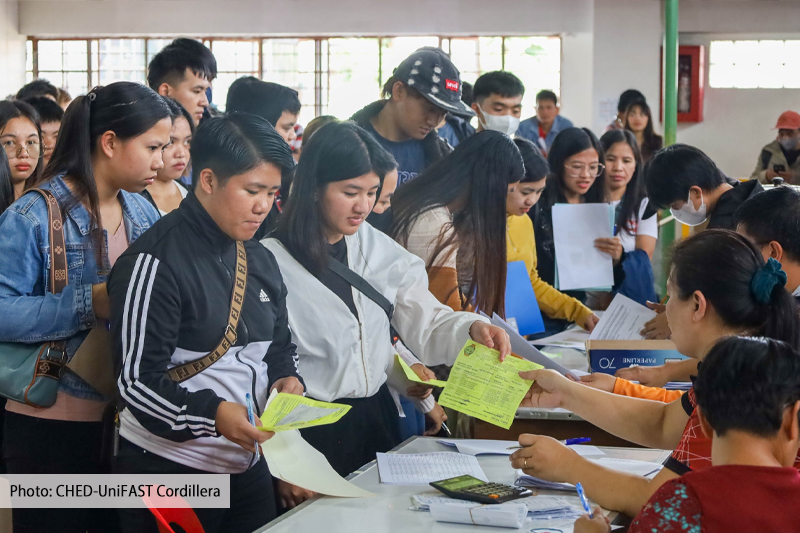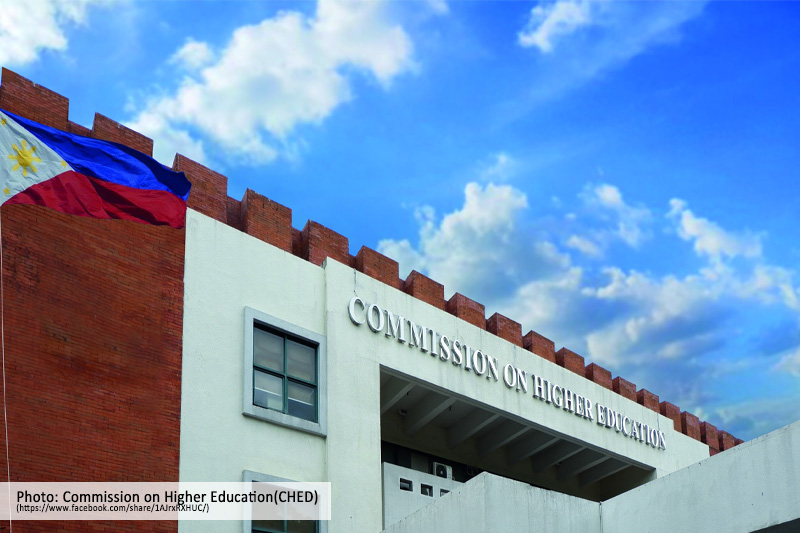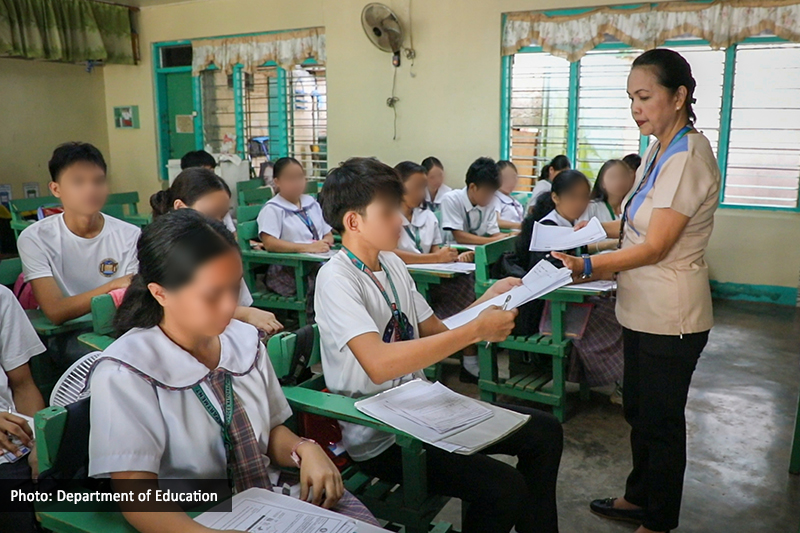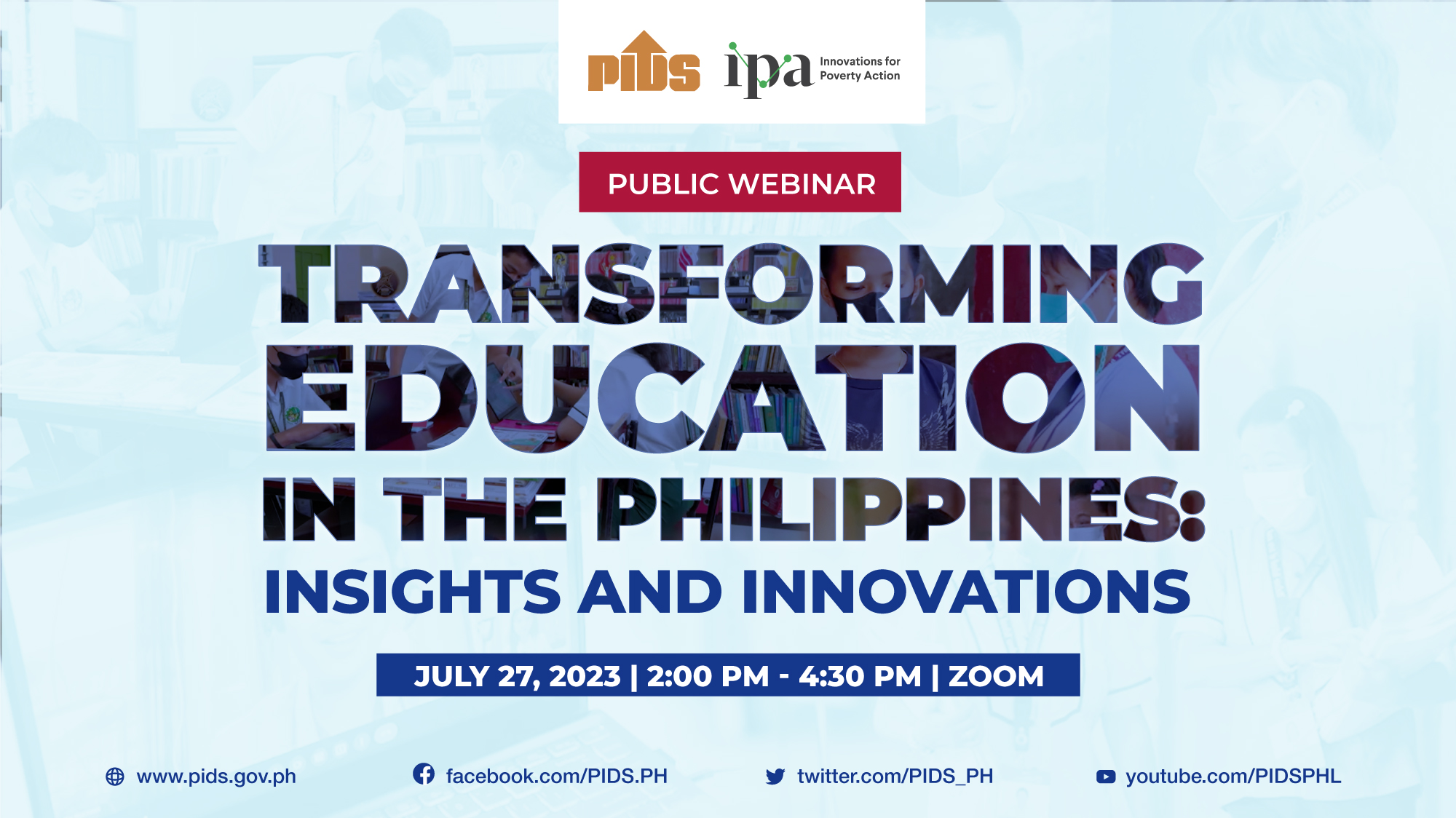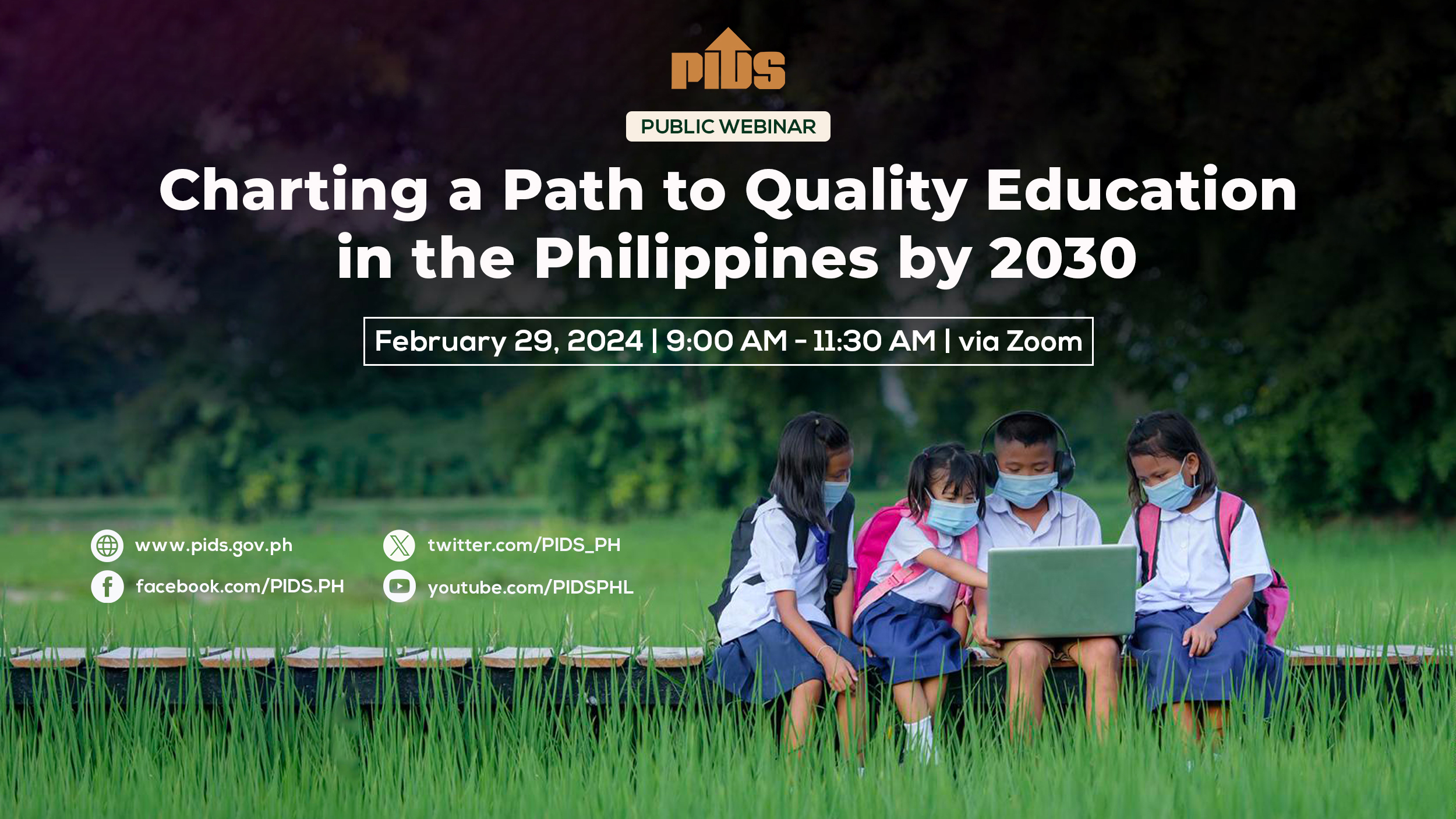MANILA, Philippines — The government is urged to impose quality standards on programs and put in place better financing schemes to address issues in quality and access to higher education, state think tank Philippine Institute for Development Studies (PIDS) said.
These were among the recommendations in the policy note titled “The Quest for Quality and Equity in the Philippine Higher Education: Where to from here?” by PIDS president Aniceto Orbeta Jr., senior research fellow Connie Bayudan-Dacuycuy and supervising research specialist Kristina Ortiz.
While there have been gains in the higher education sector including the improvement in enrollment rates, the PIDS said there is a need to address critical issues that remain.
“The Philippine higher education currently faces challenges with quality and equity in access. Outcomes and input indicators reveal low and uneven quality,” the PIDS said.
Moreover, it said equity issues in access remain despite financing reforms.
To address the uneven and low quality of higher education, the PIDS said there is a need to enforce the rule of closing programs that continually fail to produce passers in professional board exams.
The PIDS also recommends the issuance of permits to higher education institutions (HEIs) to offer programs conditional on satisfying quality standards and with the provision of automatic closure for non-compliance.
It said the government should encourage more HEIs to become centers of excellence and centers of development through increased support.
In order to address the inequitable access to higher education, the PIDS said improved student financing schemes would be needed given competition for limited slots in high quality state universities and colleges.
It said free higher education may not necessarily lead to equity in access, citing the University of the Philippines as an example where a highly selective admissions policy is being implemented, giving a student from a richer household a better chance of qualifying compared to an applicant from a lower income group.
“As such, there is a need to ensure that the prioritization in granting TES (tertiary education subsidy) is observed and review how the UniFAST (Unified Student Financial Assistance System for Tertiary Education) law proposal of using grants-in-aid to fund the education of children of poor households would make the intervention more targeted and sustainable,” the PIDS said.
The PIDS also cited the need to develop the research and development culture in HEIs by establishing innovation hubs which can facilitate the pilot testing of new technologies.
To promote employability of graduates, the PIDS’ recommendations include bridging programs and work-to-school transition initiatives, and harnessing the knowledge and expertise of industry practitioners by removing the faculty hiring bias toward academic qualifications.

